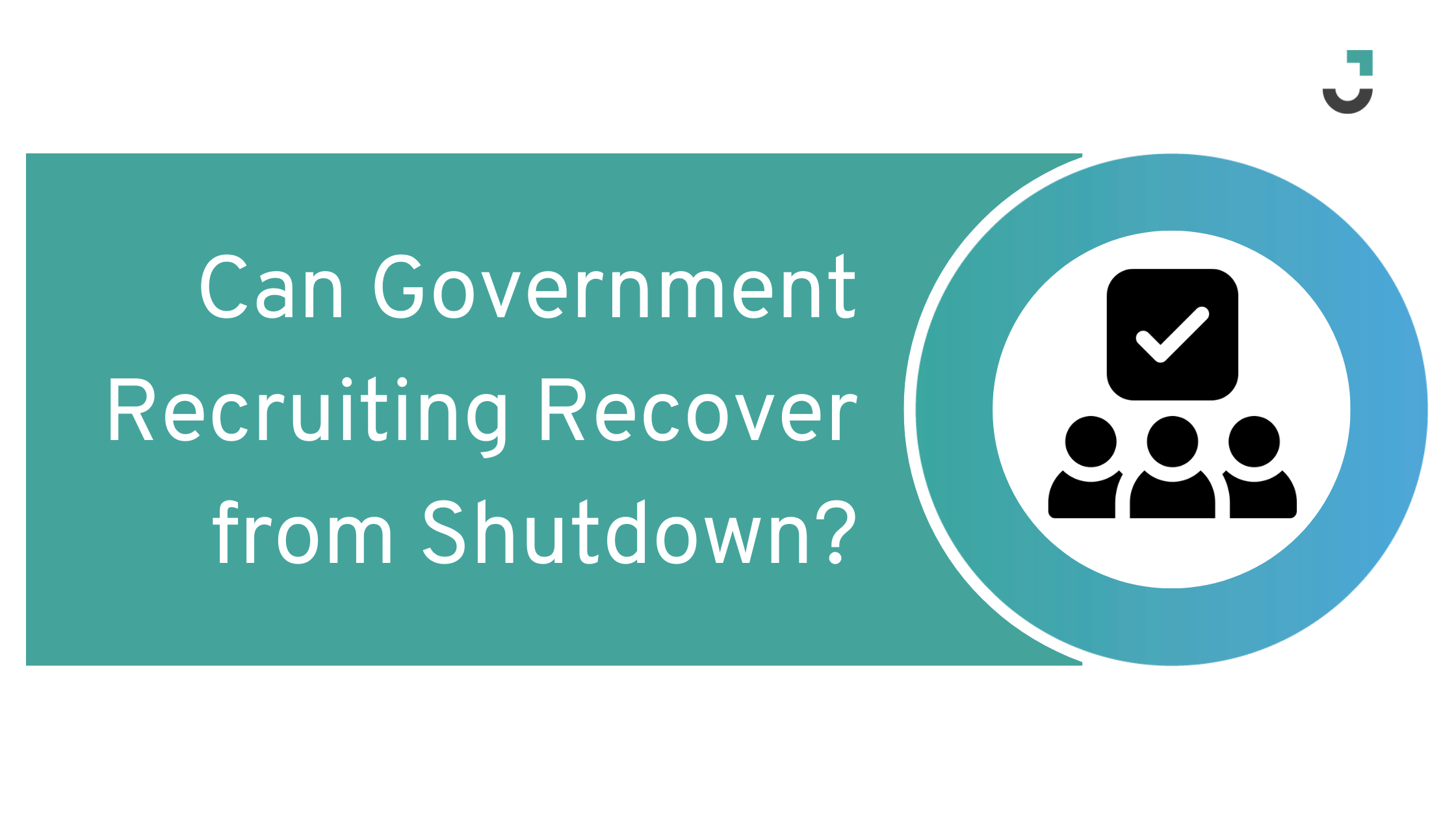Though the government shutdown ended in late January, federal workers are still feeling the effects. They may have received their back pay, but many incurred credit card debt — and the high interest costs it carries — just to buy essentials. Others missed mortgage or rent payments. And although a second shutdown was averted this month, the specter of another payless furlough will loom each time there’s a budget showdown.
So just how could these extended furloughs affect recruitment for federal jobs in the future? Let’s see.
Hiring backlogs
It’s hard to maintain a steady talent pipeline. And when that pipeline is disrupted you create an HR monkey that lives on your back for the rest of the year. National parks were the first to feel the strain of the shutdown by having to contend with tons of human waste from unauthorized visitors in the understaffed parks. Now, some are struggling to catch up on hiring the seasonal employees necessary to keep the parks open for the busy spring/summer seasons. Hiring backlogs aren’t only an inconvenience for recruiters; it slows down the entire recruitment process. It takes longer to sort through resumes, schedule interviews and complete onboard leading to an ever lengthening wait time. There are no numbers on how many workers, hired before the shutdown and scheduled to start work during it, gave up and took other jobs. It’s also not clear how many potential candidates have been dissuaded from pursuing government workers because of worries they may go without pay in a future shutdown.
Shutdown likely to impact retention
In addition to problems attracting new hires, the government may have a serious attrition problem on its hands later this year. The average turnover rate for federal work is about 16% per year and has seen a steady, but small uptick over the last few years. We could see that number increase a few more points later this year. Even after checks began to be issued, it took more than a week or two for workers to receive their full pay and technical glitches caused even longer delays for some, leading many to consider giving up on the public sector altogether. They’ve seen the way their jobs and lives can be treated as collateral damage in such a divided government and many don’t know if they can deal with that a second time.
Young workers shun government
The demographics of government work definitely skew older. Millennials account for about 70% of the US labor force overall, but people 35 and under make up only 17% of government employees. For millennials, who value a work environments where they can learn, grow, contribute, and see their accomplishments shine, a job in the federal bureaucracy doesn’t hold that promise. Furthermore, the federal hiring process (for a government that won’t even open sometimes) is time-consuming and lengthy, why bother when there’s an abundance of competitive, tech-driven employment on the market?
While the lack of youth in the government may seem like a trivial issue, remember that about 50% of the federal workforce is over the age of 50. In the next decade these workers will either be up for retirement, have been promoted or moved on to other industries. This leaves a dearth of talented, qualified people to do the necessary work needed to keep the government running. Labor shortages play a huge role in increasing employee dissatisfaction, reduced productivity and eventually attrition. It doesn’t help a business to appear incompetent or unethical either, in today’s vocal, socially conscious landscape. When the government leaves some of its most vulnerable workers dangling in the wind, it doesn’t exactly inspire a vote of confidence from the people it needs to help it keep going.
No pay = Missed payments, more debt
Recently, I had a conversation recently with a highly educated individual regarding the government shut down, who said that those unpaid workers could view it as an “all expenses paid holiday because they were eventually paid for their time.” I’m not sure federal workers appreciated the downtime. The truth is that 40% of Americans can’t even afford an unexpected $400 expense. Many working Americans struggled through or came of age during the Great Recession, and despite the fact that the economy has recovered many people are still not fiscally secure. The news coverage of the shutdown was rife with stories of families visiting food banks and other charitable organizations just to feed their families.
Federal contractors are in even more dire straits as they are not entitled to back pay and until recently, hadn’t been recalled to work. Meanwhile they still have responsibilities and debts to be repaid and no money to pay them with, another ingredient for an upcoming disaster.
Government shutdowns put vulnerable people in precarious financial positions and that can translate to larger issues for the general population. Slowly ballooning debt that people were eventually overwhelmed by was one of the reasons the Great Recession happened. That, paired with an aging workforce, a tight labor market and a pending HR nightmare as the federal workforce retires, the shutdown did nothing to increase the government’s prospects for attracting great talent in the future. For the government (and it’s future and current workers’ sake), it would be best not to shutdown again.
Original Article Found Here (Feb. 2019)
Original Author: Arran Stewart, Chief Visionary Officer and Co-founder of Job.com
Job.com is a digital recruitment innovator with a unique perspective: Delivering technology and capabilities that shake up the market by bringing together a data-driven approach based in AI and machine learning with high-level, human-capital-delivered solutions, designed to efficiently attract and retain the right talent and provide consumer-level user experiences throughout the hiring process.


